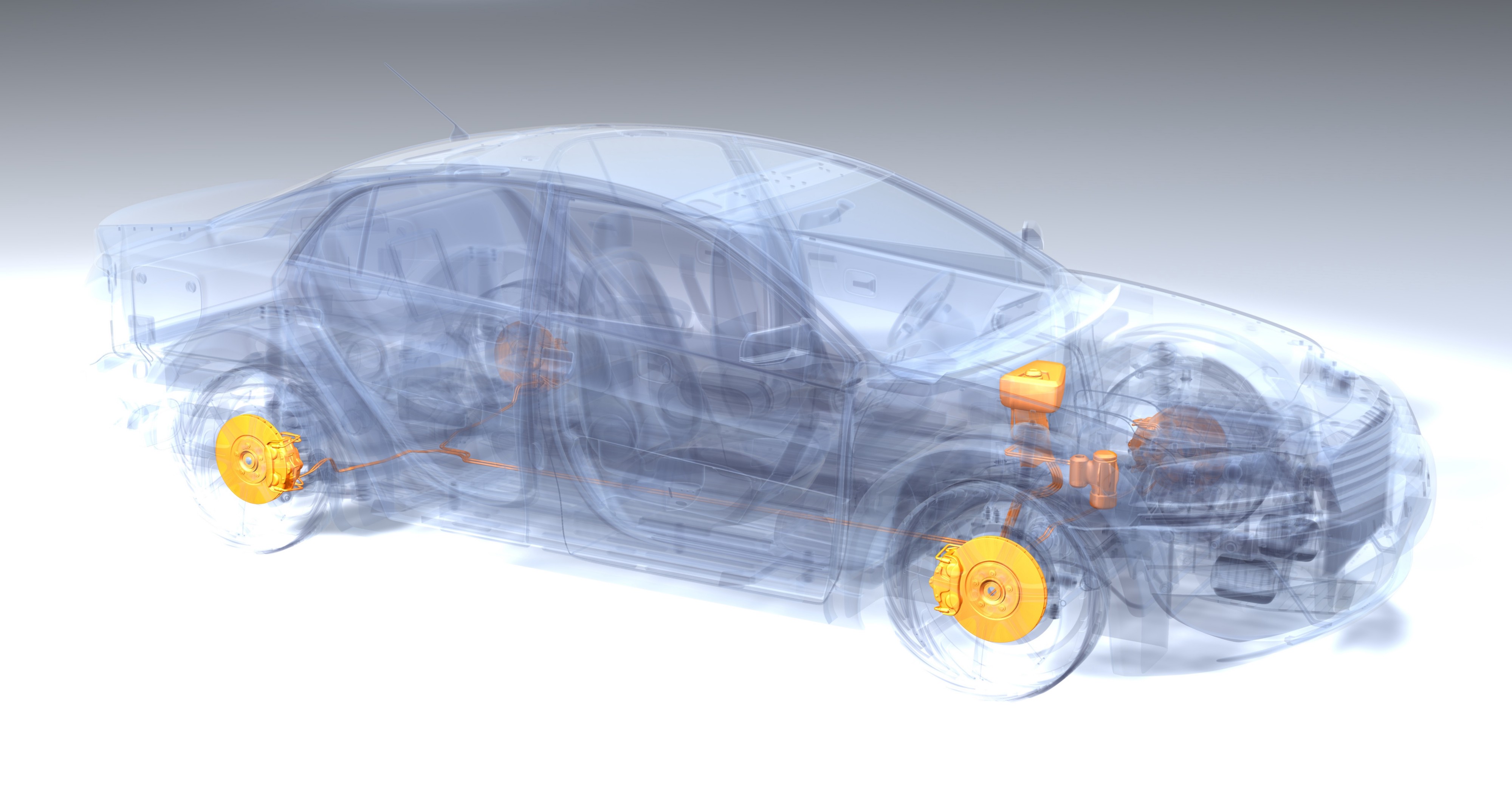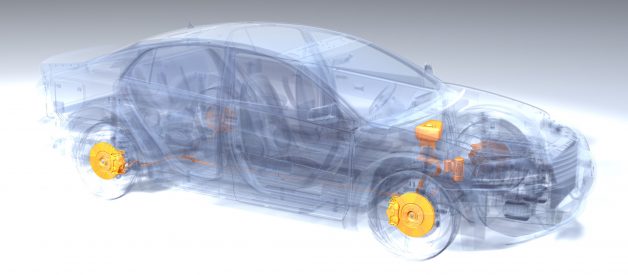By Mike Ales

So, what?s all the fuss? Brake pads are brake pads. Right? I mean, does it really matter what kind of brake pads you use? Is one type of brake pad better than another? Are ceramic brake pads better than semi-metallic pads? Or the other way around? What about the vehicle manufacturer ? what do they use? With a number of options to choose from when it is time to have your disc brake pads replaced, how in the world do you know which pads to buy? It all seems so confusing.
Well, it does not have to be confusing. The differences between the various types of brake pads available do not come down to ?better? or ?best?. Rather, the options available for replacement pads present a balance of several factors. What is good for one driver or vehicle may not be as good for another. When it comes to having brake pads installed on your car, truck, or SUV, it?s all about choice..
And there is no perfect choice. Maybe you pull a large trailer or haul a heavy load. Or you like to take your convertible for a lap or two around the track on the weekends. It may be that your greatest concern is the safety of the kids you chauffeur to and from the soccer game. Brake pads are made to suit different driving styles, purposes, and budgets. What you choose will reflect how and why you drive.
Brake pads are pretty important
Since the brakes are the most important safety feature on your vehicle, it is wise to have your brakes inspected regularly so that you know the system is working properly and that you have sufficient life left in your brake pads. The brake pads contain friction materials that grab onto a metal disc (called a brake rotor) attached to each wheel on your car. When you step on the brake pedal, hydraulic fluid exerts pressure on the brake caliper that houses the pads and squeezes the rotor to make the wheel slow down and stop. Over time, the friction material wears away and your brake pads need to be replaced. When that time comes, you can choose which type of brake pad you would like to have installed.
Years ago, brake pads were made of asbestos because it is durable, heat-resistant, and inexpensive. Of course, it was discovered that, while asbestos had some good qualities, it also posed health and environmental concerns. So, new types of friction materials were developed, each with its own set of characteristics.
Your choices come down essentially to three types of replacement brake pads. In addition to ceramic and semi-metallic pads, you might also consider organic pads often used by vehicle manufacturers. Each pad balances five characteristics: performance, noise, mess, wear on the braking system, and cost.
Organic Brake Pads
Also known as non-asbestos organic (or NAO) brake pads, these were created as an alternative to asbestos pads. Most cars sold in the US include organic brake pads from the factory. Organic brake pads are made of materials like glass, fiber, carbon, rubber, and Kevlar mixed with resins to bind them together.
Organic pads are usually your least-expensive option for replacement pads. They tend to be relatively quiet and soft, and they are gentle on the brake system. These qualities make them a great choice for daily driving. But they tend to wear out quickly compared to other brake pads. They also produce a soft-feeling brake pedal that you have to press harder to operate. And they do not tolerate overheating very well, so they are not a good option for high performance use. But they are a good all-around brake pad.
Ceramic Brake Pads
If organic brake pads are the cheapest option, ceramic pads are the most expensive. These pads are made from ceramic materials mixed with copper fibers. Ceramic brake pads were designed for driver comfort. They are quiet. They produce very little brake dust. They last the longest. And they are stable over a pretty wide range of temperatures. Ceramic pads produce a firm brake pedal. The biggest downside: their cost. But they also do not perform as well as other pads in the cold, they do not absorb heat especially well (causing wear on the rest of the system because of the increased heat), and, like organic pads, do not lend well to high performance. Organic brake pads are quiet and durable pads for comfortable daily driving.
Semi-Metallic Brake Pads
Semi-metallic brake pads are likely your choice if performance is your highest aim. These pads contain quite a bit of steel, iron, copper, and other metals that enhance their durability, heat resistance, and stopping power. Semi-metallics perform over a wider range of temperatures than other pads. They result in a firm brake pedal and absorb the most heat of any pad, keeping the brake system cooler. And they last, well, maybe not as long as ceramics, but longer than organic pads. Their price figures somewhere between organics and ceramics. But their true cost shows up in increased noise (they tend to squeal a bit) and lots of brake dust. Semi-metallic pads are also more aggressive (thus the higher performance) and cause more wear on the brake rotors. They may be the best all-around brake pad (again, it depends on your preferences) if you can deal with the noise and the brake dust. And if you are pulling that trailer, hauling a heavy load, or you tend toward fast driving and sudden stopping, these are your pads.
So, when it comes time to have your brake pads replaced, talk to the pros at Riverside Automtive in Morgantown, West Virginia about which type of brake pad ? ceramic, semi-metallic, or organic ? is right for you and your vehicle.
Riverside Automotive | Author: Mike Ales | Copyright July 2018
This article is intended only as a general guidance document and relying on its material is at your sole risk. By using this general guidance document, you agree to defend, indemnify and hold harmless Riverside Automotive and its affiliates from and against any and all claims, damages, costs and expenses, including attorneys? fees, arising from or related to your use of this guidance document. To the extent fully permissible under applicable law, Riverside Automotive makes no representations or warranties of any kind, express or implied, as to the information, content, or materials included in this document. This reservation of rights is intended to be only as broad and inclusive as is permitted by the laws of your State of residence.


